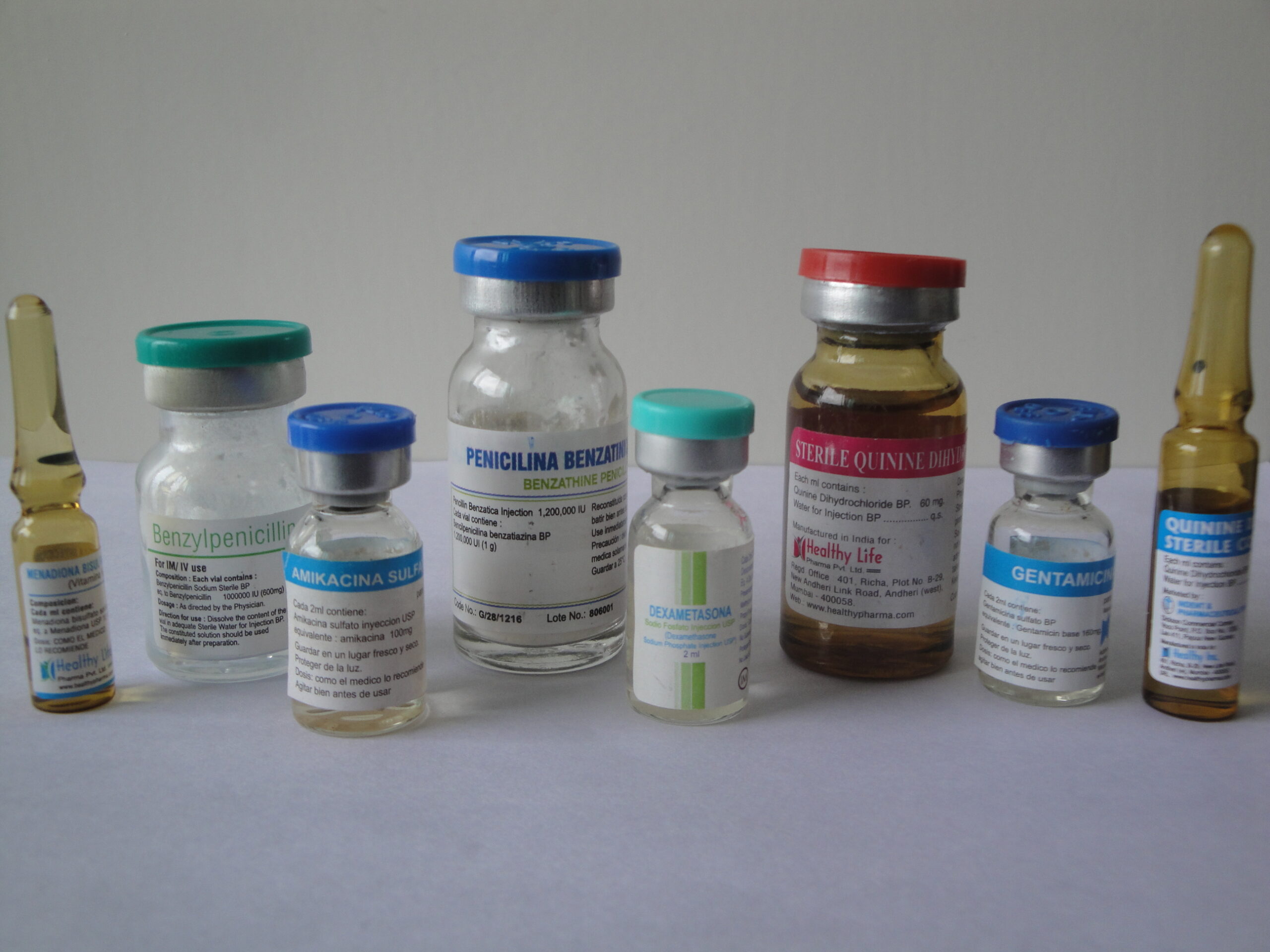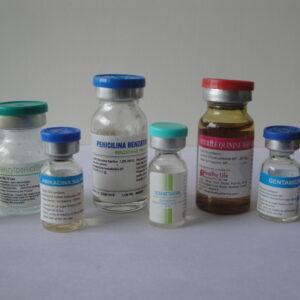Description
Atropine Sulphate injection
Atropine sulfate is a medication that belongs to the class of antimuscarinic drugs, and it is used for various medical purposes. The “I.P.” in the term stands for “Indian Pharmacopoeia,” indicating that it adheres to the standards set by the Indian Pharmacopoeia.
Here are some general aspects of Atropine Sulphate injection I.P.:
- Pharmacological Class:
Atropine is classified as an antimuscarinic or anticholinergic agent. It acts by blocking the action of acetylcholine, a neurotransmitter, at muscarinic receptors in the body.
- Indications:
Atropine sulfate is used for several medical conditions, including bradycardia (slow heart rate), organophosphate poisoning, certain types of nerve agent exposure, and to dilate the pupils during eye examinations.
- Mechanism of Action:
Atropine competitively inhibits the effects of acetylcholine at muscarinic receptors, leading to an increase in heart rate, relaxation of smooth muscle, and dilation of the pupils.
- Dosage and Administration:
The dosage of Atropine Sulphate injection will depend on the specific medical condition being treated. It is usually administered by healthcare professionals intravenously (IV) or intramuscularly (IM).
- Contraindications:
Atropine sulfate is contraindicated in individuals with a known hypersensitivity to the drug, glaucoma, and certain cardiac conditions.
- Side Effects:
Common side effects may include dry mouth, blurred vision, increased heart rate, and urinary retention. Serious side effects are rare but can include allergic reactions, hallucinations, and arrhythmias.
- Special Precautions:
Caution is advised in patients with certain medical conditions such as prostatic hypertrophy, obstructive urinary disorders, and cardiovascular diseases.
- Availability:
Atropine sulfate is typically available in various forms, including injectable solutions. The specific concentration and formulation may vary.
It is crucial to use Atropine Sulphate under the supervision and guidance of a healthcare professional, as its use requires a proper understanding of the patient’s medical history and the condition being treated. Always follow the prescribed dosage and recommendations provided by your healthcare provider.
Atropine sulfate injection is a medication used for various medical purposes, primarily in emergency situations or during surgical procedures. Here’s some information about Atropine sulfate injection:
Composition: Atropine sulfate is the active ingredient. It’s a salt of atropine, which is a naturally occurring alkaloid extracted from plants like Atropa belladonna (deadly nightshade).
Indications: Atropine sulfate injection is commonly used to treat bradycardia (a slow heart rate), to dilate the pupils for eye exams or surgery, to counteract certain types of poisoning (such as organophosphate poisoning), and to reduce saliva, mucus, and other secretions in the airways during anesthesia or surgery.
Mechanism of Action: Atropine sulfate works by blocking the action of acetylcholine, a neurotransmitter in the body. This blockade leads to various physiological effects such as increased heart rate, relaxation of smooth muscles, and dilation of the pupils.
Dosage: The dosage of Atropine sulfate injection varies depending on the condition being treated, the patient’s age, weight, and other factors. It is typically administered by healthcare professionals intravenously (IV), intramuscularly (IM), or subcutaneously (SC).
Side Effects: Common side effects of Atropine sulfate injection include dry mouth, blurred vision, urinary retention, constipation, and increased heart rate. Serious side effects such as anaphylaxis or severe allergic reactions are rare but possible.
Precautions and Contraindications: Atropine sulfate injection should be used with caution in patients with certain medical conditions such as glaucoma, urinary retention, or heart disease. It is contraindicated in patients with a known hypersensitivity to atropine or any of its components.
Storage: Atropine sulfate injection should be stored at room temperature, protected from light and moisture. It should be kept out of reach of children and disposed of properly according to local regulations.
As with any medication, it’s important to use Atropine sulfate injection only as prescribed by a healthcare professional and to follow their instructions carefully.
Atropine sulfate is a medication that belongs to the class of drugs known as antimuscarinics or anticholinergics. It is derived from the Atropa belladonna plant and is used for various medical purposes. Atropine works by blocking the action of acetylcholine, a neurotransmitter in the body, and has several effects on different organ systems.
One common use of atropine sulfate is in the field of medicine, particularly in emergency situations and anesthesia. Here are some of its medical uses:



